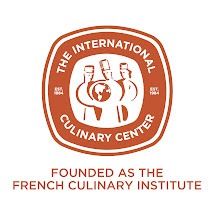In ‘Charlie Wilson’s War’ the character played by Phillip Seymour Hoffman tells a parable of a young Afghan boy who received a bicycle for his birthday. All the village gossiped that he was ‘such a lucky boy” but the old, wise man of the village just said “we shall see.’ A few years later when the boy was riding his bicycle outside the village he passed over a land mine and lost both his legs. All the villagers lamented, ‘wasn’t he unlucky’ but the wise man once again said, ‘we shall see.’ A number of years went by and war broke out in the countryside. All the older boys were dragged off to war, but the boy with no legs was spared. The villagers chorused ‘ he is a lucky boy’ and the wise man said…..
In today’s economy many people are feeling that this is an unlucky time to be looking for work. Will I find that first job? Will the job I have be here in six months? Will my business survive? Dreams are put on hold. Basic needs and realities play center stage. I can relate to this in a very personal way.
My own career search started during the recession of 1974. I had just returned from three years in the Peace Corps. I had a British University liberal arts degree and had taught English at a college in Bangkok. This exotic resume produced scant job offers in a struggling NY economy. I was miserable looking for a job, any job. My dream on leaving Bangkok was to find work in Paris or open a bistro in Maui (note: I had never worked in a restaurant save for three weeks in Bangkok when I helped out in my local Thai café to learn their recipes.) I needed money but I couldn’t even get a foot in a door. I finally had to resort to the one thing I really didn’t want….to go to work for my father’s trade school.
My father, John Cann had started Apex Technical School in 1961. Apex taught the heavy mechanical trades. Being the least mechanical person I know, working at the school never appealed to me but it was a paying job and there I was. My highest and best use was a receptionist. To my surprise I loved working at the school. I loved the students. The government defined them as an ‘at risk’ population, i.e. people who never finished high school and had a high probability of not becoming a tax payer. The students I met were young, enthusiastic, loved mechanics and wanted a job in the field. We were successful with most of them and in more ways than one. The students learned a viable skill but were also transformed into self confident individuals. For some it transformed not only their life but their family’s as well. What better work could one find?
At Apex I was promoted to become the Financial Aid Director. I took the job on with zeal and went to many workshops to understand the responsibilities. I became so involved that eventually I am became a part time ‘expert’ to the US Department of Education in how to disburse funds to vocational schools, I testified in Congress why our vocational students were entitled to Title IV funding, and I eventually was elected to the Board of Directors of the National Association of Trade and Technical Schools. It was during that tenure that I discovered a marvelous professional cooking school in Paris.
In 1980, I along with other educators were invited to visit the top vocational schools in Europe. I saw automotive schools in Germany, electrical schools in Holland, and a chef training school in Paris. Paris! Cooking! Chefs! I was in heaven. When we ate in the school restaurant I found it to be one of the best meals in my life. Why couldn’t we have a school like this in the States? We have great food products and if we have great teachers we could enjoy a meal as delicious as any in France. I was lucky to have an indulgent father who agreed with me. Apex now would start a culinary program.
The rest, as they say, is history. So I ask you, was the 1974 recession lucky or unlucky for me?
Tuesday, May 12, 2009
Subscribe to:
Post Comments (Atom)

No comments:
Post a Comment